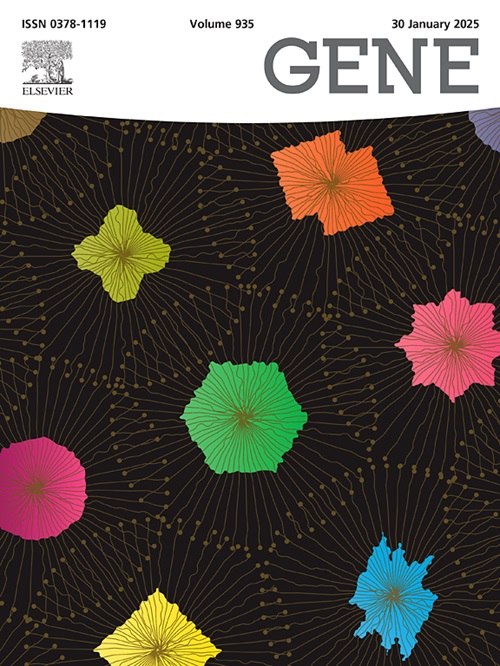Effects of Xhosa specific solute carrier family 22-member 2 haplotypes on the cellular uptake of metformin and cimetidine
IF 2.6
3区 生物学
Q2 GENETICS & HEREDITY
引用次数: 0
Abstract
Background
Studies have shown that solute carrier transporters play an important role in the transport and distribution of metformin, and that genetic variation(s) in solute carrier genes have play a role in the variation of metformin efficacy and disposition observed in populations. This study aimed to determine the cellular uptake efficiency of metformin in SLC22A2 coding haplotypes of an indigenous South African population.
Methods and results
To determine metformin and cimetidine cellular uptake in transfected HEK-293 cells, ultra high-performance liquid chromatography was used to quantitate substrate concentration(s). Haplotypes 3 and 4 showed decreased metformin uptake, and haplotypes 2 and 5 displayed increased metformin uptake in comparison to haplotype 1 (i.e. wildtype haplotype). Haplotypes 2–5 showed decreased uptake of cimetidine in comparison to haplotype 1, implying a reduced sensitivity to the inhibition of cimetidine. In all haplotypes, no significant transport was observed for metformin and cimetidine. Passive permeability of metformin was favoured in haplotypes 3 and 5, whilst the remaining haplotypes demonstrate higher passive permeability ratios in favour of cimetidine.
Conclusion
Haplotype 4, which is characterised by the non-synonymous single nucleotide polymorphisms rs316019 and rs8177517, demonstrates potential impaired metformin transport.
科萨特异溶质载体家族22-成员2单倍型对二甲双胍和西咪替丁细胞摄取的影响。
背景:研究表明,溶质载体转运体在二甲双胍的转运和分布中起着重要作用,而溶质载体基因的遗传变异在人群中观察到的二甲双胍疗效和处置的变化中起着重要作用。本研究旨在确定南非土著人群SLC22A2编码单倍型中二甲双胍的细胞摄取效率。方法与结果:采用高效液相色谱法测定转染的HEK-293细胞对二甲双胍和西咪替丁的摄取。单倍型3和4显示二甲双胍摄取减少,单倍型2和5与单倍型1(即野生型单倍型)相比,二甲双胍摄取增加。与单倍型1相比,单倍型2-5对西咪替丁的摄取减少,这意味着对西咪替丁抑制的敏感性降低。在所有单倍型中,二甲双胍和西咪替丁没有明显的转运。二甲双胍的被动通透性在单倍型3和5中表现良好,而其他单倍型则表现出较高的被动通透性,有利于西咪替丁。结论:单倍型4以rs316019和rs8177517的非同义单核苷酸多态性为特征,表明二甲双胍转运可能受损。
本文章由计算机程序翻译,如有差异,请以英文原文为准。
求助全文
约1分钟内获得全文
求助全文
来源期刊

Gene
生物-遗传学
CiteScore
6.10
自引率
2.90%
发文量
718
审稿时长
42 days
期刊介绍:
Gene publishes papers that focus on the regulation, expression, function and evolution of genes in all biological contexts, including all prokaryotic and eukaryotic organisms, as well as viruses.
 求助内容:
求助内容: 应助结果提醒方式:
应助结果提醒方式:


